|
LISTEN TO THIS THE AFRICANA VOICE ARTICLE NOW
Getting your Trinity Audio player ready...
|
It is on an April Friday. The midday sun is up, burning bright, baking everything and everybody on its pathway. I am at Umoja II, a residential neighborhood in Eastern Nairobi, a region mostly associated with the low and middle-class city dwellers. For the first time, I journeyed Eastwards on a trail of a sports story which had piqued my interest.
Basketball is not as celebrated in Kenya as elsewhere around the world, but it happens to have very enthusiastic young people who are success-thirsty. So I arrived at one of the few modern basketball courts in this neighbourhood. On this particular day, and the preceding four days, the yolk-yellow and jungle-green court has been serving as a crucible of aspiration, and a scouting camp.
Young Kenyan boys are vying for a chance that could redefine their futures, and offer them a lifeline to education and athletic prowess thousands of miles away in the United States. At the heart of this initiative is Robert Lihalakha, a Kenyan-American basketball coach and scout driven by a desire to bridge continents and give back to his homeland.
For the past four years, Lihalakha has made regular pilgrimages to Kenya, and with the help of local coaches, he has been scanning the courts for the next generation of basketball stars hidden within the Kenyan secondary schools. His mission is to identify bright prospects, expose them to the American collegiate system, and potentially secure them coveted scholarships via the student visa route. This journey might be challenge-laden, but Lihalakha’s inroads have already yielded tangible results. At least ten students have been given scholarships in the United States.
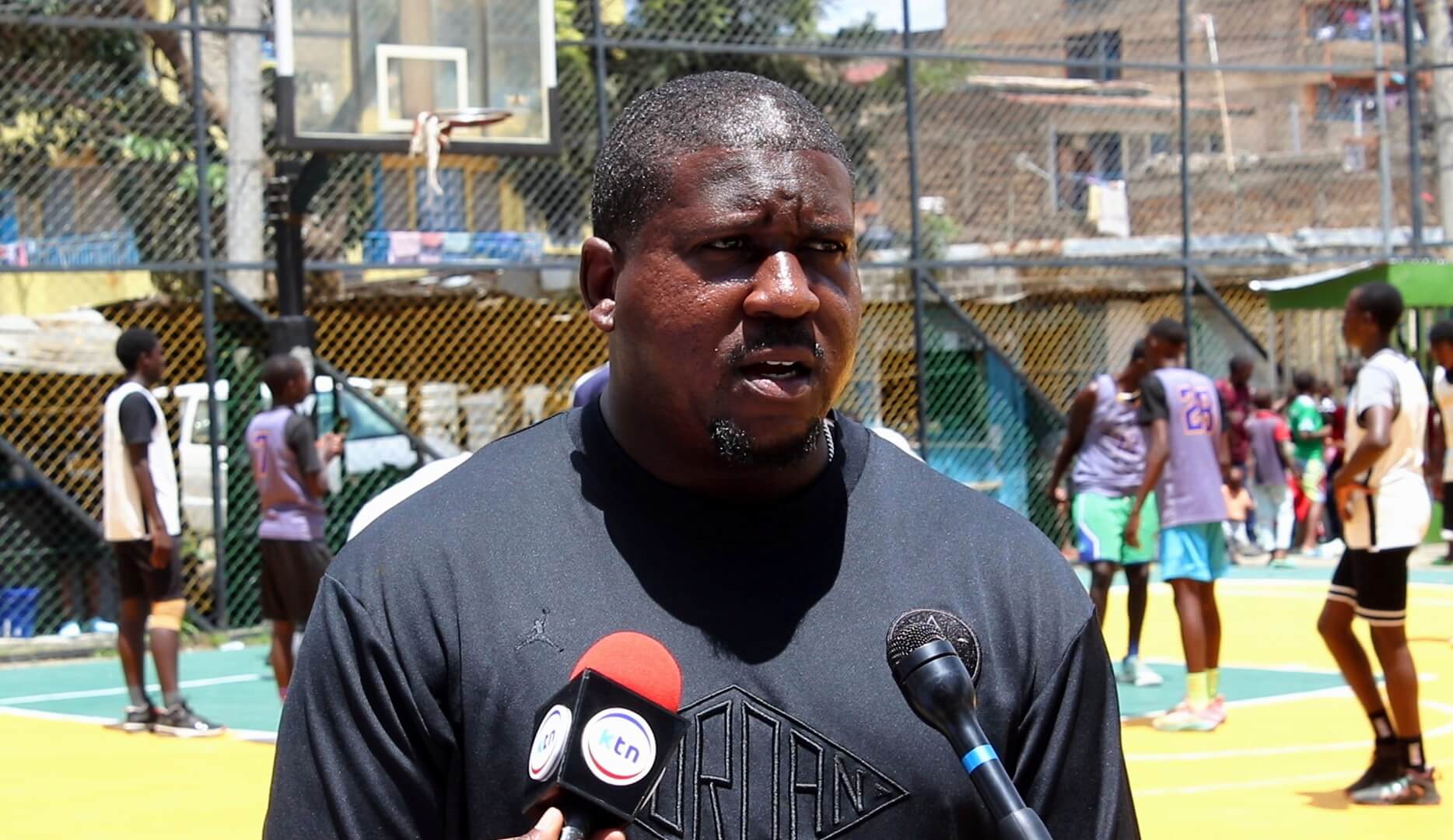
“The trouble we have had is being able to provide necessary documentation to get the visa to go (to the US),” he says. His voice carries a hint of frustration as he says this. The bureaucratic hurdles often prove as formidable as any on-court defense. “Some kids miss documents such as the passport, birth certificate and even proper transcripts. All those things have to be good, and even in the transcripts, you have to have the grades. You can’t have a transcript that is Cs and Ds, it has to have As and Bs and at the worst a C, because you are a student first and then an athlete.” Coach Rob, as he is called on these grounds, says that in the American collegiate system, athletic talent must be matched by scholastic diligence. “If a student is struggling in class in America, they can’t play.”
Lihalakha’s scouting process is organic and inclusive. He announces his upcoming camps in Nairobi, relying on local coaches to spread the word and gather promising players at a designated venue, most often the Umoja 2 court. His selection process isn’t dictated by socio-economic background but by raw talent and a burning desire to excel. “I don’t necessarily target children from low social-economic status but whoever who shows up,” he says.
Lihalakha traces his roots to Western Kenya, and his journey in basketball has fueled his passion for giving back. He brings a wealth of experience, having coached women’s Division One basketball at the University of Louisiana Monroe, in the US. This experience has ignited a particular ambition, to see Kenyan girls gain the same opportunities in the US as their male counterparts. However, he acknowledges a disparity in participation. Almost all the students showing up at the scouting camp are boys. “In the future, if I can get a coach that can facilitate girls showing up, the scholarships are there. In fact, there are more scholarships for girls because boys basketball in America has no problem, but American girls basketball is on the rise,” he notes.
He also has a bigger goal of helping at least a single Kenyan join the NBA league . “West Africa has more people in the NBA, with about ten players, and East Africa has less than five, and none is Kenyan,” he says. This statistic fuels his determination. “My goal is to get a Kenyan into the NBA because I know with these kids’ intentionality, they will be able to get into the conversation.” To achieve this ambitious goal, he believes in the power of community and collaboration. “I call upon the Kenyan diaspora community to step in and help Kenyans at home get more opportunities abroad. Sometimes even sharing a post is a contribution because awareness helps, it doesn’t have to be monetary. I call upon Kenyans in the diaspora, wherever they are in the world, to contribute to better the youth back home.”
Stiff Competition
Among the throng of hopefuls at the scouting camp in Umoja, are four young men who embody the dreams and challenges that Lihalakha’s initiative seeks to address.
David Miabok, a vibrant 17-year-old, exudes an infectious enthusiasm and a palpable hunger for success. His journey to the Umoja 2 court is an interesting roller-coaster. Born in the sprawling Kakuma refugee camp, one of the world’s most populous, Mebok’s early life offered little indication of his burgeoning basketball talent. He then spent his formative years in the arid Turkana County, a frontier region bordering Uganda to the West, South Sudan to the North, and Ethiopia to the Northeast.
“I grew up in Kakuma refugee camp, and I didn’t even know what basketball was. But I used to see people play at the court and I said that maybe someday I might play the game too,” Miabok recounts, his voice tinged with a sense of wonder, perhaps at his life’s trajectory. Fate intervened in 2020 when his academic promise and nascent basketball skills earned him a scholarship from the Kenya Basketball Federation to Kakamega High School. There, while going about his rigors of academic life, he began to hone his skills on the court after evening prep and classes.
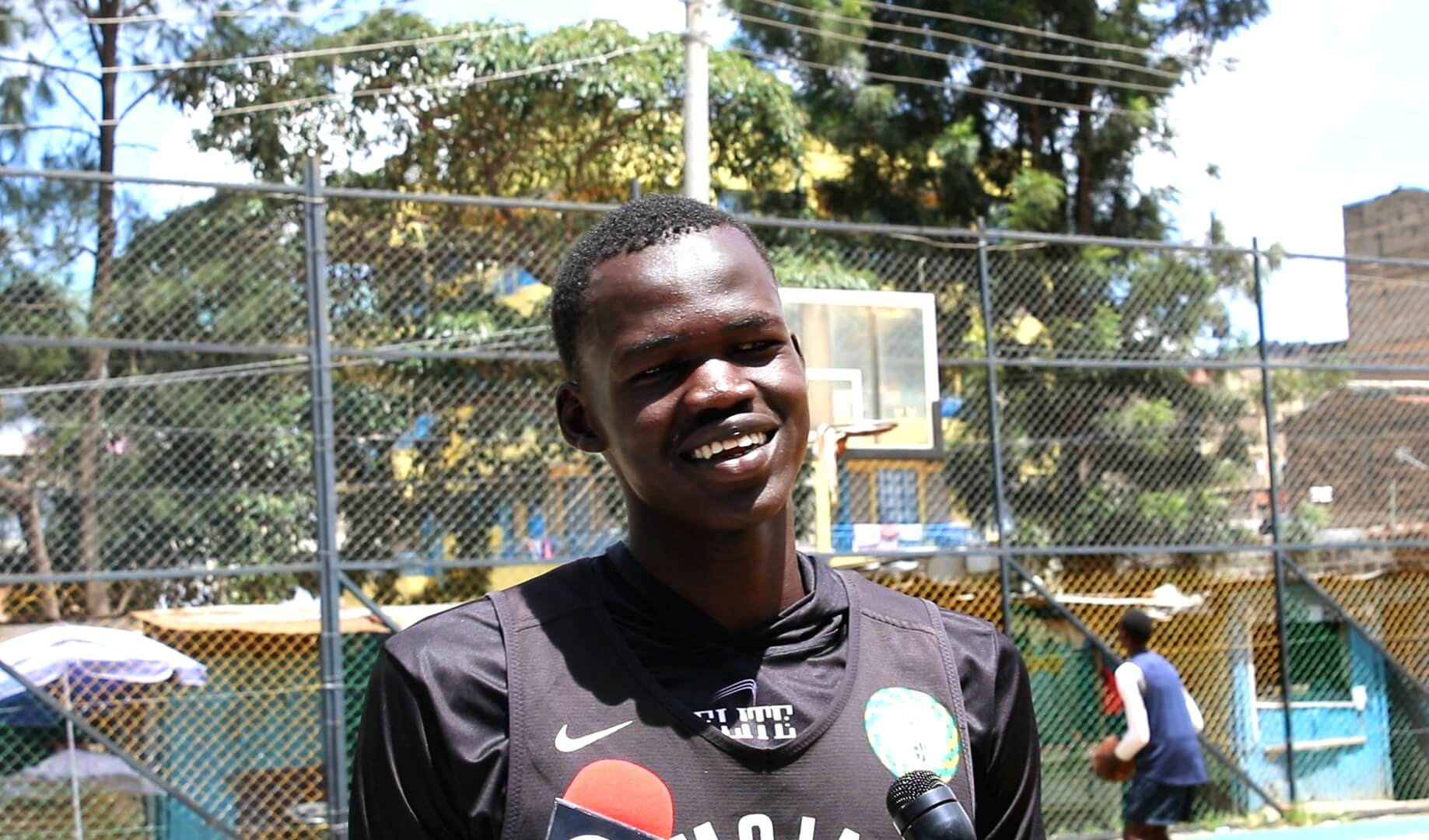
His pursuit of basketball excellence led him to Pioneer High School in Nairobi. Most Kenyans look up to Nairobi as a centre where they come to get fresh wind and achieve their dreams, and hit the jackpot of success. Miabok might have been oblivious of this when he moved to the capital, but the stars seem to have aligned for him. It was in Nairobi that he connected with a mentor, Martin, whose support has been instrumental in his development. “Coach Martin has mentored me so much, sometimes I lack fare to come here and he sends me bus fare,” Miabok says.
Miabok’s talent has already garnered recognition. He played for his school in the semifinals of the national secondary school games in Mombasa. More significantly, he was selected to join the Kenya Under 16 national team, only to have his dreams momentarily dashed by his parents’ nationality. “I was almost playing for the Under 16 Kenyan national team but they said you are South Sudanese and your parents are in South Sudan. So maybe I’ll try to join the Under 18 team,” he explains, his voice carrying some disappointment but not defeat. I asked him about his national allegiance on the court and he said that given a chance to play for either Kenya or South Sudan, he will choose “whichever comes first.”
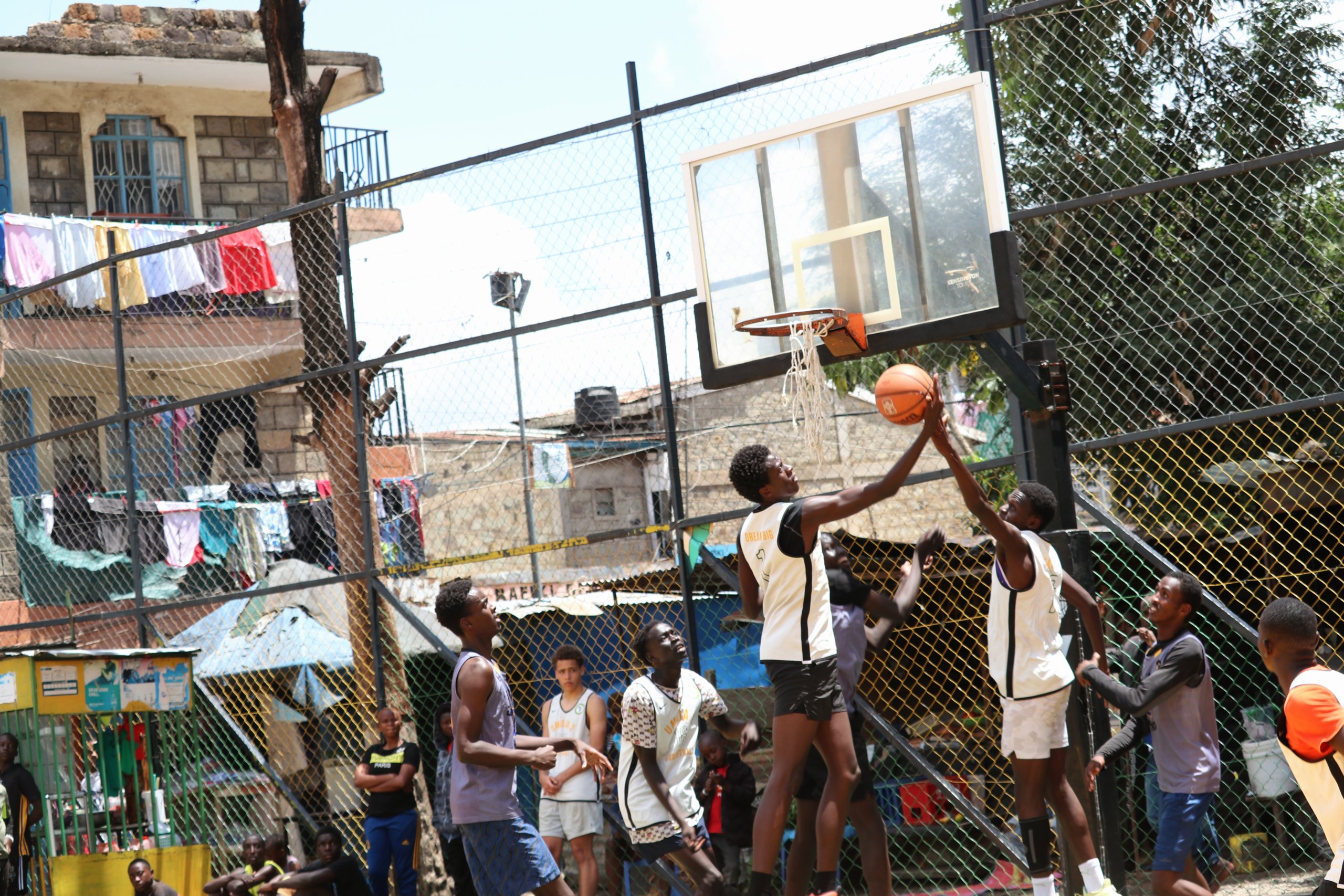
Despite these challenges, Miabok remains optimistic about his chances of securing a scholarship. “I hope to bag the scholarship because I know I’m very good in class and have the skills to play basketball like a pro,” he says with confidence. He also sees a broader shift in perception, fueled by the recent success of the South Sudan national basketball team at the 2024 Olympics. “Also, people have now known that South-Sudanese are great players and the scouts are going to come,” he says, a warm smile illuminating his face.
For Carlos Kisekel, a student at Laiser Hill Academy in Rongai, Kajiado County, the training program at Umoja has been a valuable learning ground. He is acutely aware of the intense competition for the limited scholarships on offer, but his determination remains steady. “I would like to get this scholarship so that I can make my Umoja community proud since I am their child,” he states. Kisekel’s aspirations reach beyond personal gain; his dream is to one day play in the NBA and bring glory back to Umoja.
It’s a Bumpy Road
Wade Deng, also with roots in South Sudan, used to play football before he got an injury that threw him off the pitch. He then started playing basketball and he never looked back. The Lang’ata Boys’ High School graduate says he hopes to get a basketball scholarship for a university abroad to study medicine and surgery. “In high school, I studied for four years without paying a single shilling because I got a basketball scholarship, and that’s what I am looking forward to enabling me to study in college also,” he says.
Michael Lavack, a Kenyan-American studying at the International School of Kenya says the programme has been a huge platform for him to connect with other players. He says the scholarship presents him and his peers a great opportunity to achieve their dreams in the sport and also in their respective careers. “The future is very bright and I am very happy that I have the opportunity to compete for it,” he says.
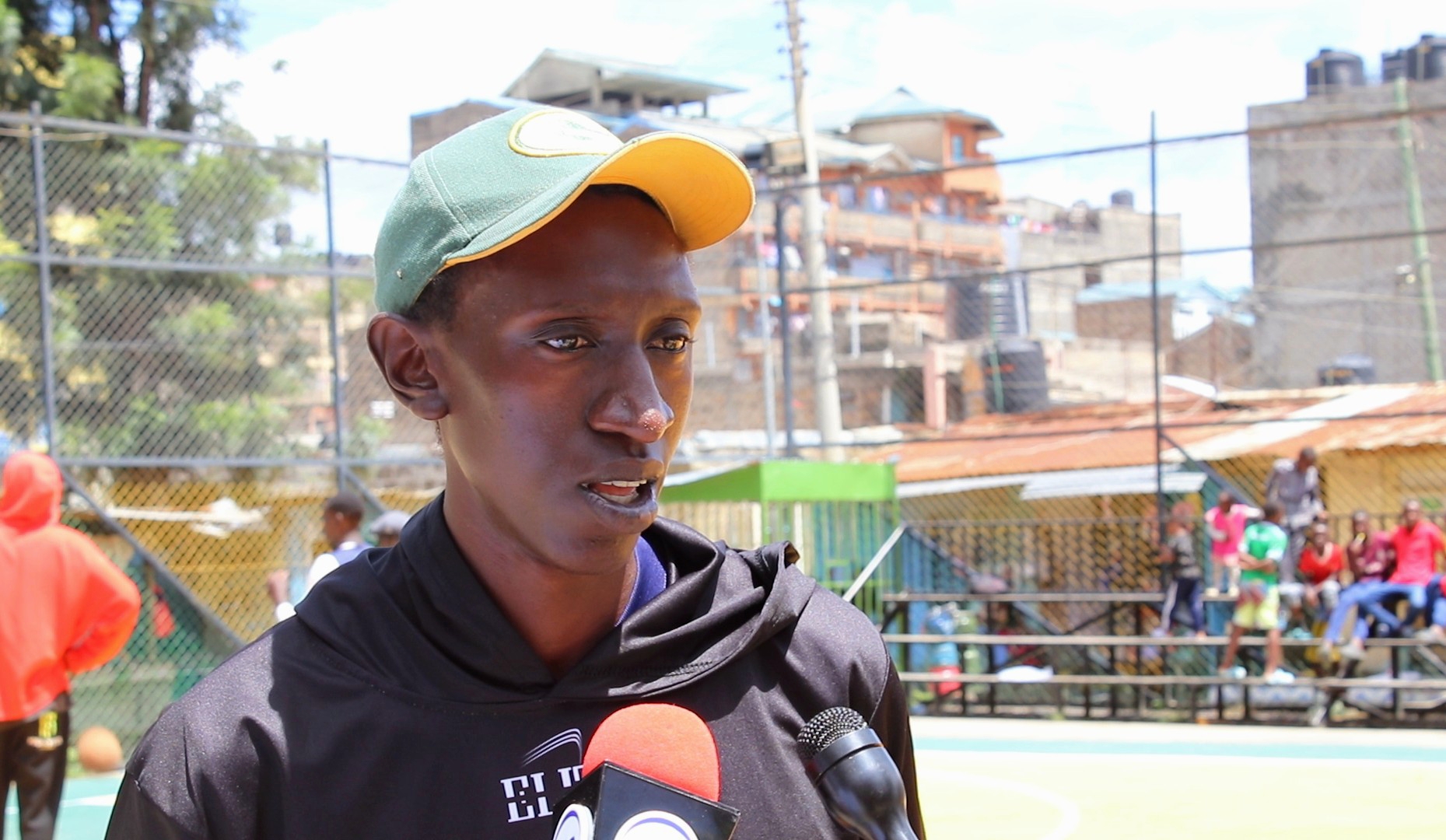
Providing crucial support to these aspiring athletes is Alvin Opiyo, the assistant coach of Elite Sports Africa Basketball Academy, the very institution hosting Lihalakha’s scouting events in Umoja. Opiyo commends the scouts for recognizing the talent hub that Umoja has become. He says that their academy attracts students from across the nation. “I believe most of these players will achieve their goals if they go to America or other countries abroad. Also, these talent scouting days have helped the players to grow and develop more skills, which is a good thing for them,” he observes.
The academy primarily conducts training sessions during school holidays, meeting three times a week. The majority of their players hail from Nairobi, particularly the Umoja area, even though they are open to students from all corners of Kenya. However, Opiyo says that many of these young athletes face significant socio-economic challenges. “Most of these kids lack basics like shoes for training and even meals on a daily basis. Some just come here to pass time because at home there is a lot of pressure from wrangles in their families, and so they come here to relax their minds,” he noted.
Despite these hardships, Opiyo offered that the players’ dedication to training yields benefits beyond potential scholarships. The academy also actively connects its players with opportunities closer to home, including scholarships at Kenyan high schools and universities such as Zetech and USIU. “There are many opportunities for them, for example, Equity bank sponsors some of them in school, they get jobs and many other opportunities for personal development,” he states.
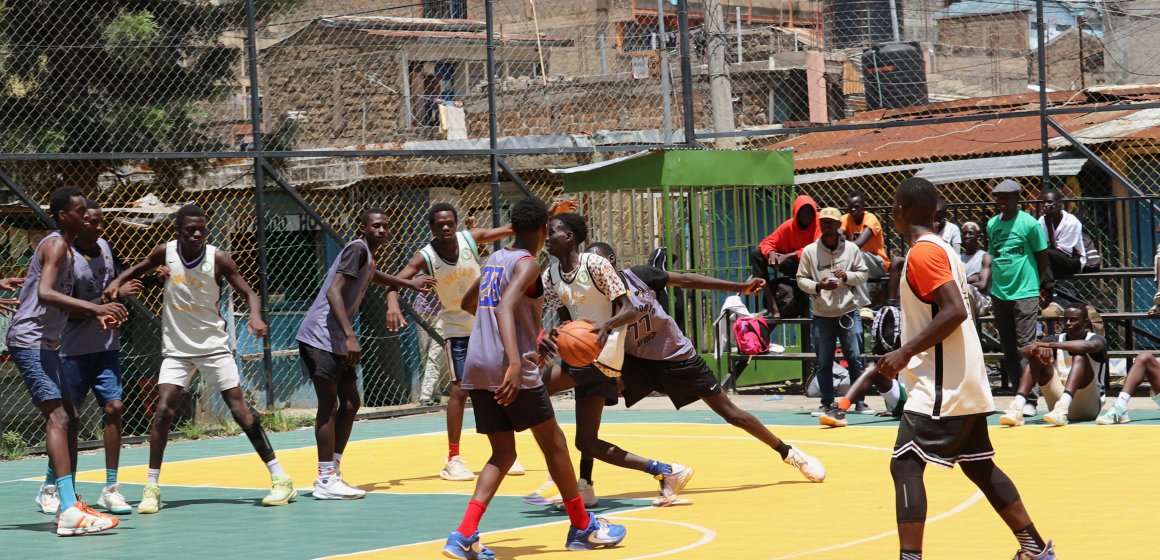



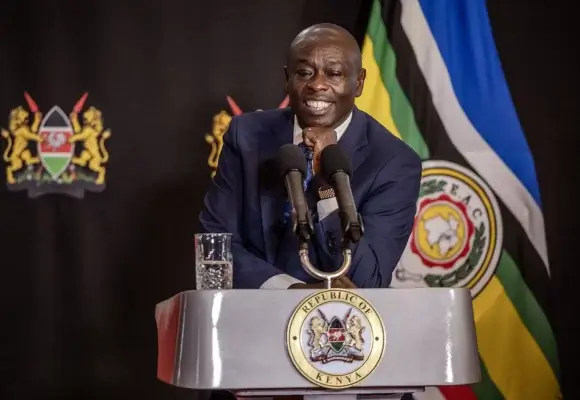





LEAVE A COMMENT
You must be logged in to post a comment.